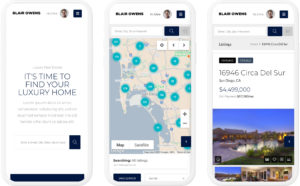It’s important to establish and maintain a positive online reputation through various digital marketing strategies, one being high-quality content for real estate agents.
Content is the backbone of any digital marketing strategy and can greatly impact your online reputation. In this article, we’ll take a closer look at the importance of high-quality content in online reputation management for real estate agents and how it can help build a positive online image.
What is High-Quality Content?
High-quality content refers to any content that provides value to the reader, is well-researched, and is well-written. In the context of real estate, high-quality content for real estate agents can take many forms, such as blog posts, videos, infographics, and social media posts. The ultimate goal of high-quality content is to engage the reader and establish trust with them.
This article will explore how real estate agents can use high-quality content to improve their online reputation management by providing value to their readers, establishing themselves as an authority, and building trust with their audience. Additionally, we will discuss the negative impact of low-quality content on your online reputation and provide tips for creating content that resonates with your audience.
Characteristics of High-Quality Content
High-quality content has several key characteristics that set it apart from low-quality content. These include:
- Relevance: High-quality content is relevant to the reader’s needs and interests. It addresses their pain points, answers their questions, and provides solutions to their problems.
- Accuracy: High-quality content is based on facts and research. It’s important to ensure that any information presented in the content is accurate and up-to-date.
- Clarity: High-quality content is easy to read and understand. It should be well-structured and use simple language that is accessible to the reader.
- Engagement: High-quality content engages the reader and keeps them interested. It should be visually appealing and use storytelling techniques to connect with the reader.
Examples of High-Quality Content for Real Estate Agents
High-quality content can take many forms in the real estate industry. Some examples include:
- Neighborhood guides: Guides that provide information about the different neighborhoods in your area, including local amenities, schools, and housing options.
- Home buying/selling tips: Tips for buyers and sellers that help them navigate the real estate market, including advice on financing, negotiating, and preparing a home for sale.
- Market updates: Regular updates on the local real estate market, including trends in pricing, inventory, and sales.
- Video tours: High-quality videos that showcase homes and neighborhoods, providing a virtual tour for potential buyers.
Providing Value to Your Readers
When it comes to creating high-quality content for your online reputation management, providing value to your readers is key. In this section, we’ll explore how to define your target audience, identify their needs and wants, and create content that addresses those needs and wants.
Understanding Your Target Audience
To provide value to your readers, you first need to understand who they are. Take some time to define your target audience, including their demographics, interests, and pain points. This will help you create content that is tailored to their specific needs and interests.
Identifying Their Needs and Wants
Once you have a clear understanding of your target audience, it’s important to identify their needs and wants.
- What are the problems they are facing?
- What information are they searching for?
- What are their goals and aspirations?
By answering these questions, you can create content that addresses their specific needs and wants.
Creating Content That Addresses Those Needs and Wants
Once you have identified the needs and wants of your target audience, it’s time to create content that addresses those needs and wants. This could include blog posts, videos, infographics, or other types of content. The key is to create content that provides value to your readers and helps them solve their problems.
Tips for Providing Value Through Your Content
Here are some tips for creating content that provides value to your readers:
- Focus on quality over quantity: It’s better to create a few high-quality pieces of content than many low-quality ones.
- Use storytelling techniques: Stories are a powerful way to engage readers and make your content more memorable.
- Provide actionable advice: Give your readers practical advice that they can use to solve their problems.
- Use visuals: Visuals such as images, videos, and infographics can help make your content more engaging and easier to understand.
Establishing Yourself as an Authority
Establishing yourself as an authority in the real estate industry is essential for building your online reputation management. In this section, we’ll explore the importance of building credibility through high-quality content and how to establish yourself as an authority in the industry.
Importance of Establishing Authority in the Real Estate Industry
As a real estate agent, establishing authority in the industry is crucial for building trust with your audience. By positioning yourself as an expert, you can demonstrate your knowledge and expertise, which can help you stand out from your competitors.
Building Credibility through High-Quality Content
One of the most effective ways to establish yourself as an authority in the real estate industry is by creating high-quality content. By creating content that is informative, useful, and relevant to your target audience, you can demonstrate your expertise and build credibility with your readers.
How to Establish Yourself as an Authority in the Industry
Here are some tips for establishing yourself as an authority in the real estate industry:
- Identify your niche: Focus on a specific area of the industry that you are knowledgeable about and passionate about.
- Create high-quality content: Write blog posts, create videos, or produce other types of content that demonstrate your expertise in your niche.
- Network with other industry professionals: Attend conferences, join industry associations, and connect with other professionals in your niche.
- Share your expertise: Participate in online forums, answer questions on Quora, and share your knowledge and expertise with others.
Benefits of Being an Authority in the Industry
Establishing yourself as an authority in the real estate industry has several benefits, including:
- Increased trust and credibility: By demonstrating your expertise, you can build trust and credibility with your audience.
- More leads and referrals: People are more likely to do business with someone they perceive as an expert in their field.
- Better search engine rankings: High-quality content can improve your search engine rankings, which can help more people find your website.
How to Create High-Quality Content
Creating high-quality content is crucial for building your online reputation management. In this section, we’ll explore the steps you can take to create high-quality content, and common mistakes to avoid when creating content.
Steps to Creating High-Quality Content
- Define your goals: Start by defining your goals for your content. What message do you want to convey to your audience? What do you want them to do after reading your content?
- Research your topic: Before you start writing, research your topic thoroughly. Use credible sources to gather information and statistics that support your message.
- Develop an outline: Create an outline for your content, including an introduction, body, and conclusion. This will help you stay organized and ensure that your content flows logically.
- Write your content: Use your outline as a guide to write your content. Be sure to use a clear and concise writing style and incorporate relevant keywords.
- Edit and proofread: After you’ve written your content, edit it carefully for grammar, spelling, and punctuation errors. Then, proofread it to ensure that it’s error-free.
Common Mistakes to Avoid When Creating Content
- Lack of research: Failing to research your topic thoroughly can result in inaccurate information and undermine your credibility.
- Poor writing: Poor writing can make your content difficult to read and decrease its effectiveness.
- Lack of focus: Failing to focus your content on a specific topic can make it confusing and difficult to follow.
- Lack of proofreading: Failing to proofread your content can result in embarrassing errors that can damage your online reputation.
How High-Quality Content Improves Your Search Engine Rankings
As a real estate agent, you understand the importance of being visible online. After all, the majority of homebuyers and sellers start their search on the Internet. But just having a website and social media presence isn’t enough – you need to ensure that your online presence is optimized for search engines. That’s where search engine optimization (SEO) comes in.
Importance of search engine optimization (SEO)
SEO is the practice of improving your website’s visibility and ranking on search engine results pages (SERPs). The higher your website ranks, the more likely it is that potential clients will find you when they search for relevant keywords or phrases. This is why SEO is a critical part of any online marketing strategy, including for real estate agents.
How high-quality content impacts SEO
One of the primary ways that you can improve your search engine ranking is through the creation of high-quality content. Search engines like Google prioritize content that is relevant, informative, and valuable to readers. By creating content that meets these criteria, you’re more likely to appear at the top of search results pages.
Strategies for improving search engine rankings through content creation
There are several strategies you can use to improve your search engine rankings through content creation. These include:
- Conducting keyword research: Research relevant keywords and phrases that your target audience is searching for, and incorporate them into your content.
- Creating unique, valuable content: Focus on creating content that is unique, informative, and valuable to your readers. This could include blog posts, videos, infographics, or other types of content.
- Optimizing on-page elements: Ensure that your on-page elements, such as title tags, meta descriptions, and header tags, are optimized for search engines.
- Building backlinks: Backlinks are links from other websites to your website. The more backlinks you have from high-quality, relevant websites, the more likely it is that search engines will view your website as authoritative and rank it higher.
Building Trust with Your Audience Builds Trust with Your Brand
Building trust with your audience is crucial in any industry, but it is especially important in real estate. The decision to buy or sell a property is a significant one, and clients want to work with someone they can trust. Establishing trust with your audience is key to building a successful real estate business, and high-quality content can help you achieve that.
Importance of building trust in the real estate industry
Trust is the foundation of any successful relationship, and the real estate industry is no exception. Clients want to work with someone they can trust to guide them through the process of buying or selling a property. Without trust, it can be challenging to close deals and establish long-term relationships with clients.
How high-quality content helps build trust with your audience
Creating high-quality content that provides value to your audience is an excellent way to build trust. When you provide helpful and informative content, it demonstrates your knowledge and expertise in the industry. It also shows that you care about your clients and want to help them make informed decisions.
Benefits of building trust with your audience
Building trust with your audience has numerous benefits. It can lead to more significant and more frequent transactions, as clients are more likely to work with someone they trust. It can also result in more referrals, as satisfied clients are more likely to recommend your services to others. Additionally, building trust with your audience can help you establish a positive reputation in the industry, which can lead to even more business opportunities in the future.
How Low-Quality Content Can Harm Your Online Reputation
In the fast-paced world of digital marketing, it’s easy to prioritize quantity over quality when it comes to content creation. However, low-quality content can have a detrimental effect on your online reputation, particularly if you are a real estate agent. In this section, we’ll explore what low-quality content is, provide examples of it in the real estate industry, and examine the negative impacts it can have on your online reputation.
Definition of Low-Quality Content
Low-quality content is content that lacks value, originality, and relevance. It’s often hastily produced, poorly researched, and contains a high level of errors or inaccuracies. This type of content provides little to no benefit to the reader and can damage the credibility and authority of the author or brand behind it.
Examples of Low-Quality Content in the Real Estate Industry
- Keyword stuffing: Overusing keywords in a way that doesn’t make sense or doesn’t add value to the reader’s experience. For example, repeatedly using the phrase “best real estate agent” throughout a blog post, even when it’s not relevant to the topic.
- Clickbait titles: Using sensational titles that don’t accurately reflect the content of the article. For example, “You Won’t Believe What This Real Estate Agent Did to Sell a House!” when the article doesn’t contain any surprising or noteworthy information.
- Plagiarized content: Copying and pasting content from other sources without giving proper credit or attribution. This can result in legal trouble and damage to your online reputation.
- Thin content: Publishing short, low-quality blog posts that don’t provide any real value to the reader. For example, a post that simply lists the steps to buying a house without offering any additional insights or helpful tips.
- Outdated information: Publishing content that contains inaccurate or outdated information. For example, promoting a real estate strategy or tactic that is no longer effective or relevant.
Negative Impacts of Low-Quality Content on Your Online Reputation
The negative impacts of low-quality content on your online reputation can be significant. First and foremost, it can damage your credibility and authority as a real estate agent, making it harder to establish trust with your audience. It can also harm your search engine rankings, as search engines like Google prioritize high-quality content that provides value to readers. Additionally, low-quality content can result in negative online reviews, as readers may feel misled or dissatisfied with the information provided. This can lead to a decrease in website traffic and ultimately, a decrease in leads and sales.
Conclusion
To improve your online reputation as a real estate agent through high-quality content, it’s essential to understand your target audience, identify their needs and wants, and create content that addresses those needs and wants. By following best practices for content creation, avoiding common mistakes, and consistently producing, you can establish yourself as an authority in the industry, build trust with your audience, and improve your search engine rankings.



